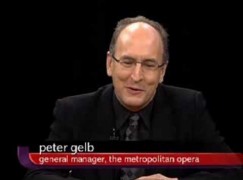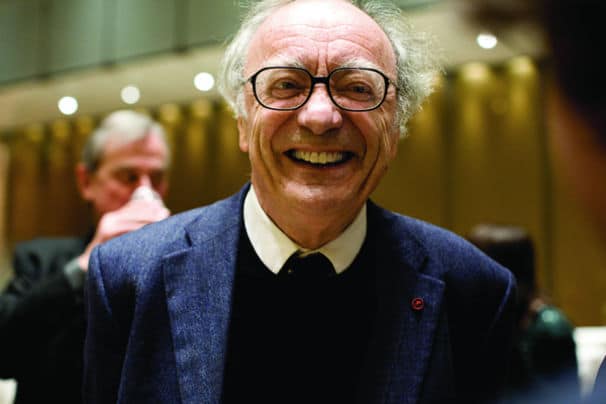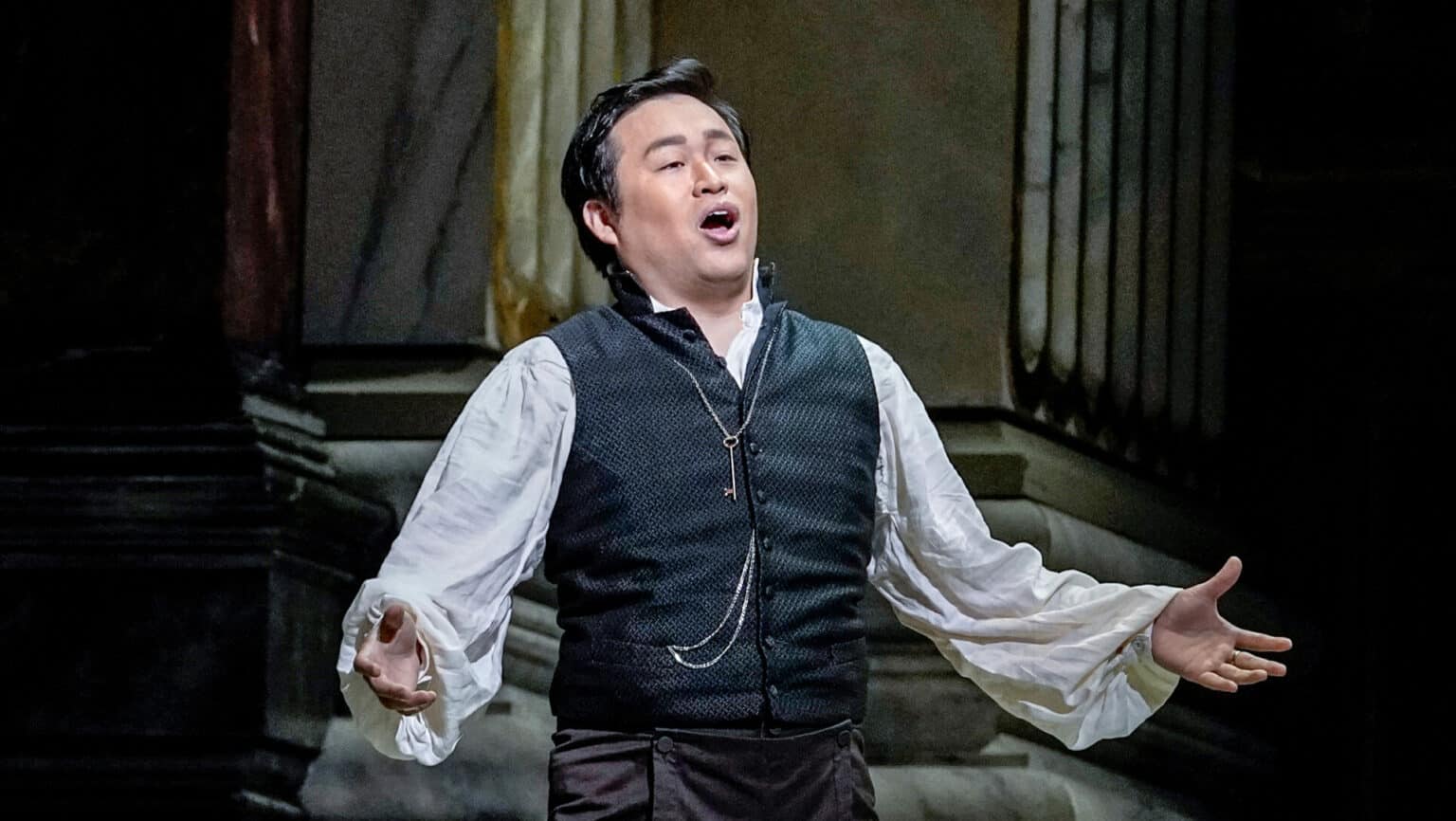Met admits further dip in finances. Whose fault?
mainThe Metropolitan Opera has forecast a ‘significantly larger’ deficit for the year ending July 31, exceeding last year’s $2.8 million budget gap.A financial-disclosure document released last night blames the fall on lower than expected contributions and a dip at the box-office.
Whose responsibility is that?

WSJ reports: The Met’s budget grew to $327 million last year from $222 million in 2006, when Mr. Gelb took the helm. To cover its operating costs, it has drawn heavily from its endowment, which now stands at $267 million, compared with $306 million in 2006.
Gelb is demanding 17 percent wage cuts from musicians, chorus and stage workers.





To get a picture of how stunning the growth of the MET budget has been during the Gelb era, consider this: the cumulative inflation rate from 2006 to 2013 was 15.6 percent. If the MET’s budget of $222 million in 2006 had only kept pace with inflation, then, the 2013 budget would have been $256 million. In real terms, the 2013 budget represents about a 26 percent increase over 2006.
Call it what you will, but a spending increase of this magnitude by a non-profit(!) during a period of anemic economic growth strikes me as a result of financial mismanagement. That the Board of the MET allows Gelb to continue seems as irresponsible and as reckless as his management of the compay.
in a nutshell. that is precisely what a lot of posters have been saying! Add to that the ‘hunch’ that revenues would increase as a result of more and more interesting new productions, and you throw naivete into that financial cauldron. The Board appointed Gelb. The Board liked his ideas. The Board gave him a new 10-year contract. The Board failed to ensure that he started reining in contracted expenditure at the last round of negotiations. Now they are struggling in a deep financial hole! A lot of firing should be going on!
Let’s turn the clock back a bit and see how attitudes of the Met’s Board attitudes have changed over the years.
There is a long feature titled “The Epic Ups and Downs of Peter Gelb” in the New York Times Magazine of March 21, 2103 with some ‘epically’ pertinent quotes about the Met’s GM, one from Chairwoman Ann Ziff –
“‘We were incredibly lucky to find someone like Peter,’ Ziff said when I met her at her office. ‘He brought us a new vision. You don’t know you need a new vision until someone brings it, and it’s made a huge difference in the popularity of opera around the world.’”
Interesting! You don’t know a new vision until it appears before you!
Err, excuse me Mrs. Ziff, but less than a year later didn’t your GM start moaning that opera worldwide essentially appeals only to the older crowd and is not drawing in those new audiences it needs to survive, the ones you specifically mention? What is your view of that new vision now, I wonder?
There is also a perceptive article from the same newspaper by Harold Schoenberg dated June 15, 1983, headed “LEVINE SAID TO SEEK ARTISTIC CONTROL OF MET.” This was published around the time the Met had started the search to replace Anthony Bliss as its General Manager.
It suggested, “Job qualifications for general manager of the Metropolitan Opera are manifold. Among them are a knowledge of opera, singing and staging, strong administrative ability, fund-raising, union negotiations, the care and upkeep of the house, working with public and Federal agencies, a knowledge of several languages, a strong personality, close relationship with opera guilds and other opera houses.”
Perceptively, it then added: “There are those on the search committee who believe that no one person can possess all of these qualities. The job has grown too big and demanding, they say.” One of the Search Committee, William Rockefeller, even told Schoenberg, “The current operation of the Metropolitan Opera . . . is a long time beyond a one-man show. It’s no longer as it was in 1950, when a Rudolf Bing could come in and take over every aspect of the job. Today we have a $70 million operation that is too much for any one man to handle.”
So the Board split the job and handed artistic control to Levine. The mantra then was clear: a Met budget of $70 million was too big for one man to handle. As long as Levine was in control of artistic matters, the job was essentially split. That has now changed very significantly, though, with Levine stepping down from the Artistic Director post in 2004. Even though the Board is in charge of a budget getting close of 5 times the amount it was in 1983, the present Board was perfectly happy to place all management and virtually all artistic control in the hands of one man. Now Gelb is an old-school one-man Bing-type – one with a mere fraction of the experience than Bing when he appointed.
How is it, I wonder, that the job was felt to be too big to place in the hands on one man in 1983; yet Ms. Sills and Mrs. Ziff and her colleagues believed it was perfectly acceptable to do just that in appointing Gelb in 2004?
My last word in this post I give to Gelb himself. There was another hugely perceptive and long feature in Vanity Fair THE MET”S GRAND GAMBLE published in May 2010. The author commented on the work he had been seeing on stage during the day and the huge amount of overtime that was being incurred. Gelb’s response?
“Of course I worry about it,” said Gelb, on the subject of the Met’s finances. “But I don’t really know how else to proceed.… I don’t know any other way of ensuring a future for opera than what I am doing now.” In Gelb’s view, spending money is the only way to bring in money—that is, to sell more tickets and attract more donors. His strategy, in other words, is a high-stakes gamble. To cut back is as good as giving in.”